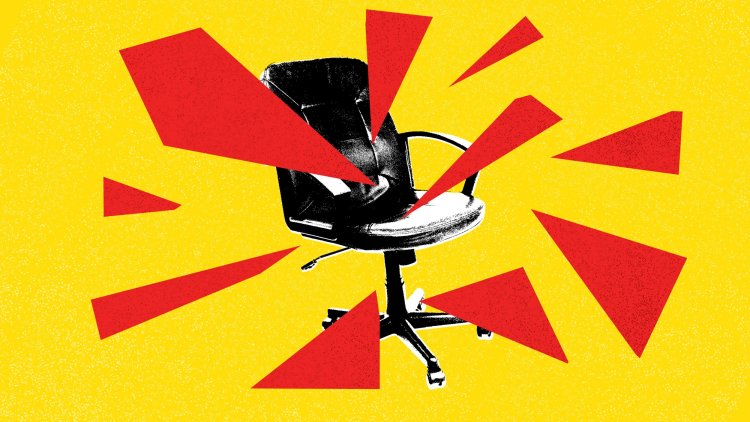Trump’s Campaign to Dismantle the Government
The president is pursuing the longstanding conservative goal of neutralizing the federal bureaucracy.

Over the decades, the American right has deployed violent imagery to describe its highest ideological goal: drown government in a bathtub, starve the beast, slash and burn. In less than two weeks of organized chaos, the Trump administration has realized these fantasies, but by deploying tactics both more subtle and more sinister than the movement’s old guard ever imagined.
Rather than eliminating departments wholesale or depleting the budgets of agencies, it has relied on menacing gestures. By arbitrarily placing civil servants on probation, reclassifying bureaucratic positions as political appointments, freezing grant spending, floating a “deferred resignation” offer by mass email, and firing high-profile federal prosecutors and inspectors general, the administration has created the impression that it is making preparations for a mass purge of the government.
Some of these moves are transparent provocations—trolling by executive order—that press the limits of the law and will be slapped away by the courts. But it may not matter. This psychological gamesmanship might obviate the need for an actual purge because its tactics have been conceived to prod a huge chunk of the civil service to exit on its own accord.
[Read: Trump targets his own government]
In Washington, this is an intensely local story. At the stations of everyday existence—the coffee shop, the gym, the bookstore—I keep encountering longtime civil servants who are either scrambling to leave their jobs or considering that possibility. They vent about how they can’t live in a state of terminal anxiety. They resent being treated as if they were somehow derelict, despite decades of demonstrable competence. Even lower-level bureaucrats describe a dread of being fired for once having said the wrong thing at a conference. Some of them vow to stay, but their faces betray fear. I worry that they won’t resist the bullying.
Military service is justifiably venerated because it involves potential physical sacrifice on society’s behalf. The civil service engenders pretty much the opposite reaction. Bureaucracy is synonymous in Western culture with pettiness, excessive fastidiousness, and the arbitrary wielding of unaccountable power. Anyone who has dealt with the federal government knows of its imperfections.
Whatever those flaws, the civil service is also worthy of respect that the culture fails to accord it. I’m constantly amazed by how many smart professionals idealistically commit to careers in government with the knowledge that they will earn far less than they would at, say, a law firm or in management consulting. With long careers, they acquire expertise in archaic but essential fields—poultry exports, vaccine policy, the administration of economic sanctions. Their wisdom makes fair-minded governance possible. They work in organizations that are sometimes maddening, on behalf of political leaders whom they don’t always support. For the most part, they endure the annoyances of their jobs, because they believe in the underlying mission of their departments and agencies—missions they have good reason to suspect are now being snuffed out by Donald Trump’s draconian new personnel policies.
[Read: It’s not amateur hour anymore]
One of the abject failures of Joe Biden’s presidency was that he did not proselytize for his own faith in institutions, which he considered the essential bulwarks against autocracy. Institutionalism is a counterintuitive proposition.
Bureaucrats are trained to be responsive to political leaders, but not beholden to them. When bureaucrats publish economic data, their allegiance is to empirical reality, not the presidents who might benefit from rosy reports. When they apply regulation, they typically avoid the impulse to enrich cronies. Sometimes the process is creaky, but it’s that process that expresses the high ideal that the state’s power must be neutrally applied. And this high ideal is part of the reason that so much of the world trusts the United States with its investments and capital.
Over the course of a career, individuals become vessels of the culture of the institutions they inhabit, and they transmit that culture to newcomers. That’s something that the new administration clearly understands. By chasing out personnel, Trump and his allies are destroying the habits of government; they are crushing the civil service’s sense of purpose, the commitment that inspires dedication to studious neutrality.
Nobody would invent government institutions as they currently exist, but that’s their strength. Their culture emerges from the long histories of organizations, developed organically over time, prodded by moments of legislative reform, largely resistant to the fads of the moment. This is not something that returns with an orientation session or even the next change of administration.
The wrecking ball should inspire humility. In an afternoon, timeless fixtures of a landscape can be reduced to scrap and dust. What’s destroyed in a flash of ideological fervor, at the behest of a president who abhors dissent, can’t be so easily replaced, if it all.
What's Your Reaction?




















